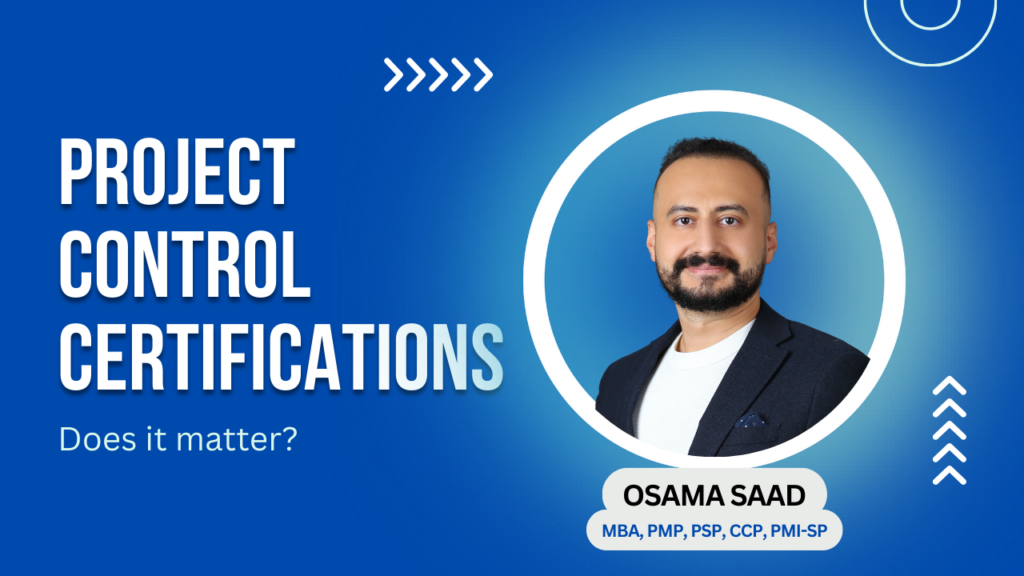When it comes to certifications in project management and project controls, one common question arises:
“Are certifications mandatory for career success?”
The short answer is: No.
Certifications like PMP, PSP, CCP, or PMI-SP introduce you to foundational concepts and principles, but they don’t teach you the practical skills you need to excel in the workplace.
The limitations of certifications
While certifications add value, they have limitations which include the following as an example:
- Automated Reporting: Certifications won’t teach you how to set up advanced analytics and reporting systems using tools like Power BI.
- Claims Management: They don’t cover practical tasks like submitting Extension of Time (EOT) claims.
- Client Presentations: They don’t address preparing progress presentations tailored to client needs.
A Real-World Perspective
To give you a better idea about the importance of certifications, let’s break it down with two scenarios:
- Planner A: Has valuable practical skills but no certifications.
- Planner B: Has multiple certifications but lacks practical skills.
Who will get hired?
Most companies will choose Planner A because they can deliver results.
Now, imagine a situation where both planners have the same skills and experience, but Planner A also has certifications.
Who stands out now?
Planner A becomes the preferred candidate, as certifications are seen as a bonus that demonstrates commitment to professional growth.
Why Practical Skills Come First
Few companies prioritize certifications over real-world skills but I believe that this is the exception, not the rule. Employers are more interested in what you can do, not the credentials you hold. Certifications are valuable, but only after you’ve built enough skills to get the job done. To put it another way, you should prioritize practical skills. If you’re new or lacking in hands-on experience, focus on developing skills that help you get the job done. Once you’re confident in your practical knowledge, certifications can boost your credibility and career opportunities
Disadvantages of Certifications
Certifications have their downsides:
1- Lack of Practical Application: They focus on theory over hands-on experience.
2- No Templates or Software Training: Certifications rarely include ready-to-use tools or software knowledge.
3- Cost: Certifications are not free. They require a financial upfront investment that may include training, membership and exam fee. Moreover, they require ongoing renewal fees to maintain.
Conclusion
Certifications are not a requirement but can be a great addition to your career when combined with real-world expertise. Focus on learning practical, job-relevant skills first, and use certifications to supplement your professional journey.
Regards,
Osama Saad, MBA, PMP, PSP, CCP, PMI-SP
Learn More!










